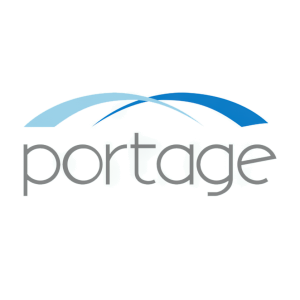Portage Biotech Enters Cooperative Research and Development Agreement with U.S. National Cancer Institute and Stimunity
Portage Biotech Inc. (NASDAQ: PRTG) announced a Cooperative Research and Development Agreement with the National Cancer Institute (NCI) and Stimunity, S.A.S to enhance cancer vaccine efficacy. The collaboration aims to develop STING agonists and anti-RAGE agents, leveraging the NCI’s resources for preclinical and potential clinical advancement. The STING pathway enables targeted immune response, while anti-RAGE agents may counteract immune suppression in cancer progression. Portage's innovative approach uses systemic delivery mechanisms to enhance vaccine effectiveness, with multiple clinical readouts expected in the next 12-24 months.
- Collaborative agreement with NCI and Stimunity to advance cancer vaccine development.
- Focus on developing STING agonists and anti-RAGE agents for improved efficacy.
- Potential for enhanced immune response through novel systemic delivery methods.
- Multiple clinical readouts expected over the next 12-24 months, indicating ongoing development progress.
- None.
Insights
Analyzing...
Collaboration will advance preclinical and potential clinical development of STING agonists and anti-RAGE agents for cancer vaccines
Portage and NCI will develop agents to enhance the efficacy of proprietary cancer vaccines and mouse model cancer vaccines developed by the NCI
WESTPORT, Conn., April 25, 2022 (GLOBE NEWSWIRE) -- Portage Biotech Inc. (NASDAQ: PRTG), a clinical-stage immuno-oncology company developing therapies to improve patient lives and increase survival by avoiding and overcoming cancer treatment resistance, today announced that it has entered a Cooperative Research and Development Agreement (CRADA) with the National Cancer Institute (NCI), part of the U.S. National Institutes of Health, and Stimunity, S.A.S, an affiliate of Portage with experience in the preclinical development of stimulator of interferon genes (STING) agonists for cancer immunotherapy and infectious diseases.
Under terms of the agreement, Portage, Stimunity and the NCI will collaborate with the NCI’s Center for Cancer Research (CCR) to advance preclinical and potential clinical development of STING agonists and anti-Receptor for Advanced Glycation End products (RAGE) agents, for possible synergy individually or together to enhance the efficacy of cancer vaccines developed in the NCI CCR Vaccine Branch. The scope of the CRADA agreement includes in vitro and in vivo testing conducted by Dr. Jay Berzofsky, Chief of the NCI CCR Vaccine Branch and an experienced cancer vaccines expert. Dr. Berzofsky and colleagues have deep expertise in T cell immunology, tumor immunology and translation of basic immunological research, as well as strategies to develop vaccines for cancer, human immunodeficiency virus (HIV), and viruses that cause cancer.
“This new collaboration provides an exciting opportunity which combines our team’s strong background advancing novel technology for cancer treatment with the expertise and resources of the NCI,” said Dr. Ian Walters, Chief Executive Officer of Portage Biotech.
“The cancer vaccine space is evolving rapidly, but we still need to know how to optimize the immune response by blocking multiple inhibitory mechanisms evoked by the tumor and by amplifying vaccine induction of immunity so that we can make these vaccines more effective,” said Dr. Berzofsky. “We hope this collaboration will help us to discover a better way to release the brakes and push on the accelerator so we can move cancer vaccines forward.”
The STING pathway is a well-recognized immune-boosting pathway and has long been an area of interest in cancer treatment, but STING-activating therapies have been challenged by the requirement for intratumoral delivery and indiscriminate targeting. The STING agonist platform offers a first-in-class systemic delivery approach to develop molecules that activate the STING pathway specifically in antigen presenting cells. Portage Biotech and Stimunity recently presented promising data at the American Association for Cancer Research (AACR) conference showing that a STING-activating therapy packaged in a virus-like particle preferentially targeted dendritic cells, leading to activation of tumor-specific T cells.
The RAGE pathway is involved in various inflammatory and immune responses and plays a role in a wide range of other pathologies including cancer progression. Anti-RAGE agents have the potential to overcome some of the mechanisms that inhibit the body’s immune response against cancer.
About Portage Biotech Inc.
Portage is a clinical-stage immuno-oncology company advancing first-in-class therapies that target known checkpoint resistance pathways to improve long-term treatment response and quality of life in patients with evasive cancers. The Company’s access to next-generation technologies coupled with a deep understanding of biological mechanisms enables the identification of the most promising clinical therapies and product development strategies that accelerate these medicines through the translational pipeline. Portage’s portfolio consists of five diverse platforms, leveraging delivery by intratumoral agents, nanoparticles, liposomes, aptamers, and virus-like particles. Within these five platforms, Portage has 10 products currently in development with multiple clinical readouts expected over the next 12-24 months. Portage is collaborating with Stimunity on the development of STING agonists in a virus-like particle, a unique systemic biological approach that leverages technology licensed from Institut Curie, Inserm, and University of Oxford. Stimunity’s drug candidate, STI-001, is best-in-class, systemically delivered, and enhances anti-tumor T cell response due to its ability to target dendritic cells. For more information, please visit www.portagebiotech.com, follow us on Twitter at @PortageBiotech, or find us on LinkedIn at Portage Biotech Inc.
Forward-Looking Statements
This news release contains statements about the Company’s information that are forward-looking in nature and, as a result, are subject to certain risks and uncertainties. Although the Company believes that the expectations reflected in these forward-looking statements are reasonable, undue reliance should not be placed on them as actual results may differ materially from the forward-looking statements. The forward-looking statements contained in this news release are made as of the date hereof, and the Company undertakes no obligation to update publicly or revise any forward-looking statements or information, except as required by law.
FOR MORE INFORMATION, PLEASE CONTACT:
Investor Relations
Chuck Padala
chuck@lifesciadvisors.com
Media Relations
Gwendolyn Schanker
gschanker@lifescicomms.com








